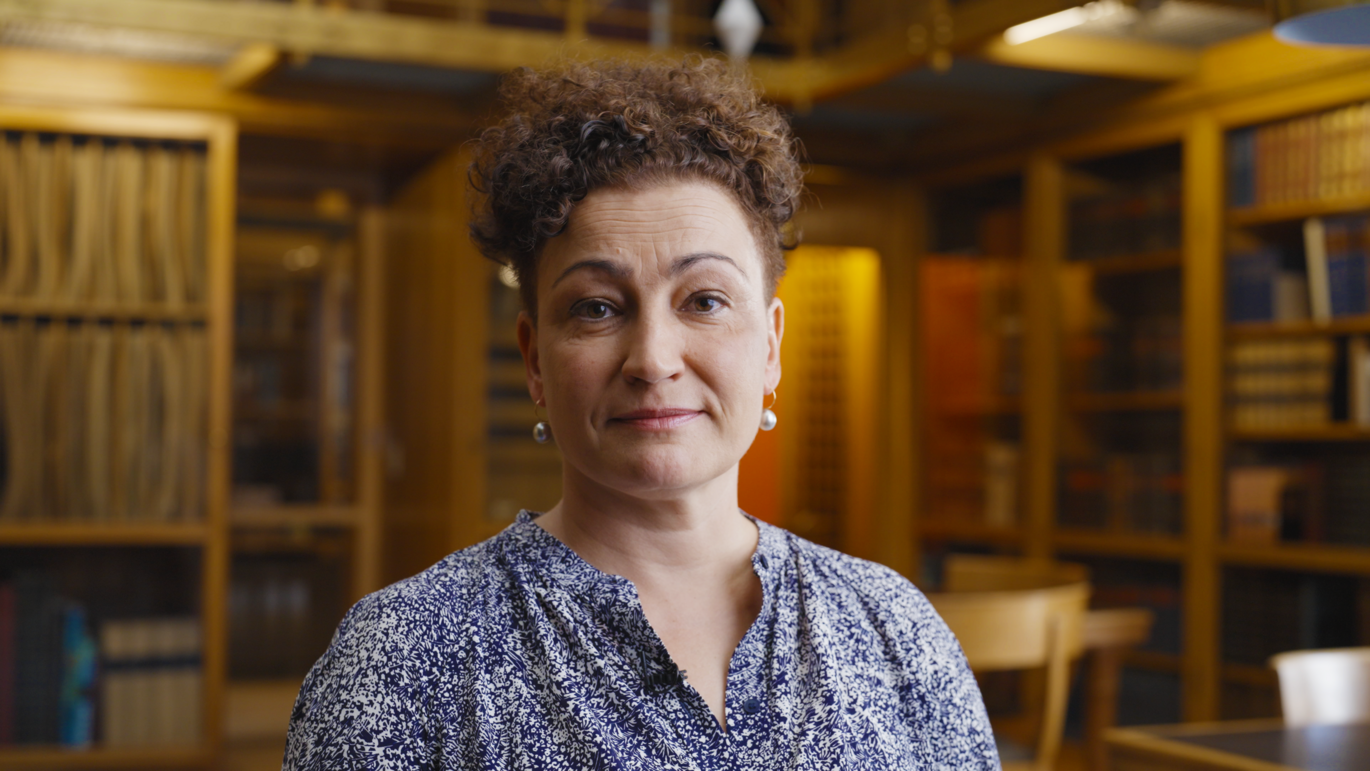Rubina Raja receives the Carlsberg Foundation Research Prize 2024
Rubina Raja is a professor of classical archaeology at Aarhus University and receives the Carlsberg Foundation's Research Prize for her extensive archaeological studies from ancient urban societies and networks to portrait culture in Palmyra. Her research has, among other things, led to new insights into important world historical events and paved the way for a completely new approach to archaeological excavations.

"Rubina Raja is a prolific, ambitious and internationally recognized expert on the ancient city of Palmyra, which was located in modern-day Syria. She heads the Palmyra Portrait Project, which is the largest study ever of ancient norms for depicting people. The most significant result of the project is the publication of over 4,000 grave portraits from Palmyra. Rubina Raja's efforts regarding Palmyra have ensured a holistic understanding of an archaeological site that has now largely been lost as a result of the civil war in Syria," these are some of the many words of praise in the prize committee's justification for awarding the Carlsberg Foundation Research Prize 2024 to Rubina Raja.
She has a degree in classical archaeology from the University of Oxford and has been employed as a professor at Aarhus University since 2015. Her research falls within four focus areas: the visual culture of antiquity – especially portrait cultures, cities and their networks from antiquity to the early Middle Ages, the historiography of archaeology, including archival studies, and active field archaeology.
Groundbreaking research is carried out in collaboration with other researchers
Many of the most important discoveries in her research areas, she says, have been published together with colleagues from Denmark and abroad, including talented junior researchers, often in interdisciplinary collaborations to bring together the right skills. Therefore, based on many years of experience, she also emphasizes that groundbreaking research in archaeology, which changes our view of world history, today often arises in collaborations.
"One example is the portrait research that I have carried out with one of my research teams and colleagues over the past ten years. The results from that project will change the entire paradigm of how we should understand the Roman portrait culture. Fundamentally, it is about a rewriting of a part of world history – no matter how small it may seem from the outside. There are several of these kinds of projects that I would like to realize. The results will be able to change the way we carry out classical archaeology, as well as how we use the results broadly," says Rubina Raja, who is also recognised for her skills as a research leader.
Generous and ambitious research leader
Rubina Raja is described by colleagues as an outstanding research leader who is recognized for having expanded the traditional focus of classical archaeology by also having a geographical and cultural horizon that extends beyond ancient Greece and Rome, and for having developed an advanced approach to archaeological excavations together with colleagues in archaeology, geoscience, physics and statistics.
In addition, this year's laureate has founded a research journal, the "Journal of Urban Archaeology", and several international book series such as "Mediterranean Studies In Antiquity" and "Urban Archaeological Pasts" – which not only testify to an ambitious approach to his field, but also are rooted in a generous desire to be able to promote colleagues' research ideas.
Since 2015, Rubina Raja has headed the Danish National Research Foundation's Center of Excellence for Urban Network Evolutions (UrbNet), which deals with cities and their networks from northern Europe to the east coast of Africa. Through this, she also participates in fieldwork around the world and works with local and international researchers.
About the prize, Rubina Raja says: "It is an invaluable recognition for me to receive the Carlsberg Foundation Research Prize. It is a prize that I do not believe I would have been awarded if the Danish foundation landscape had not given me the opportunity to conduct both solo and collaborative research at the top level for several years in a row. So, in many ways, the recognition belongs not only to me, but also to my collaborators and employees and the foundations that have continuously supported my research ideas and my organization to make room for solid and groundbreaking humanities research."
The Carlsberg Foundation Research Prize
The Carlsberg Foundation Research Prize celebrates active Danes researchers in Denmark or abroad who have made a decisive contribution to Danish basic research at a high international level. The prize is awarded on the recommendation of an internationally composed prize committee. The award comes with DKK 2 million.
Read the motivation for awarding the research prize to Rubina Raja
Publicity based on press material from the Carlsberg Foundation
Contact
Rubina Raja, Professor and Head of Centre
Urban Network Evolutions (UrbNet)
Classical Archaeology
Department of Culture and Society
Aarhus University
Mobile: +45 2718 8390
Mail: rubina.raja@cas.au.dk
